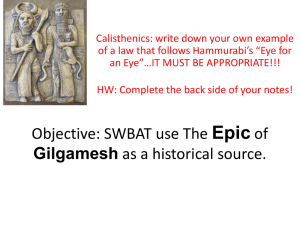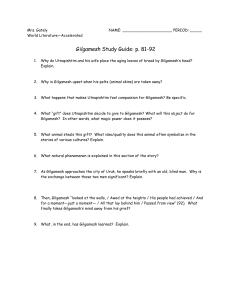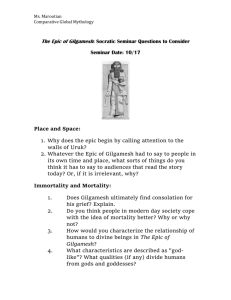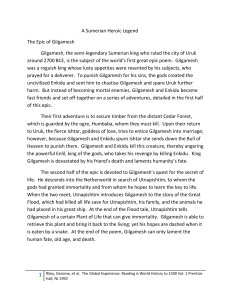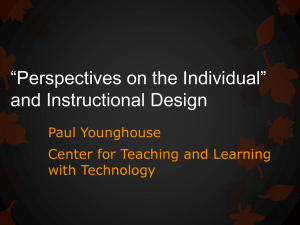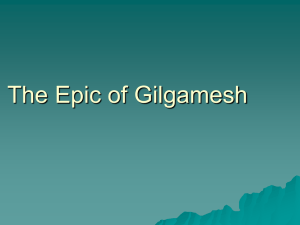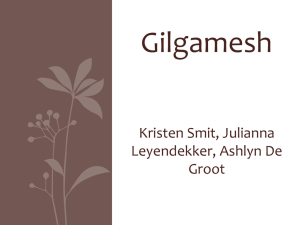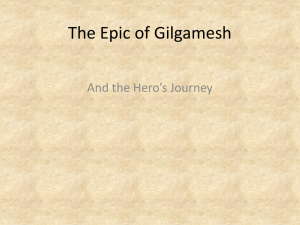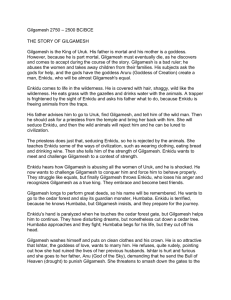Humanities 2210
advertisement
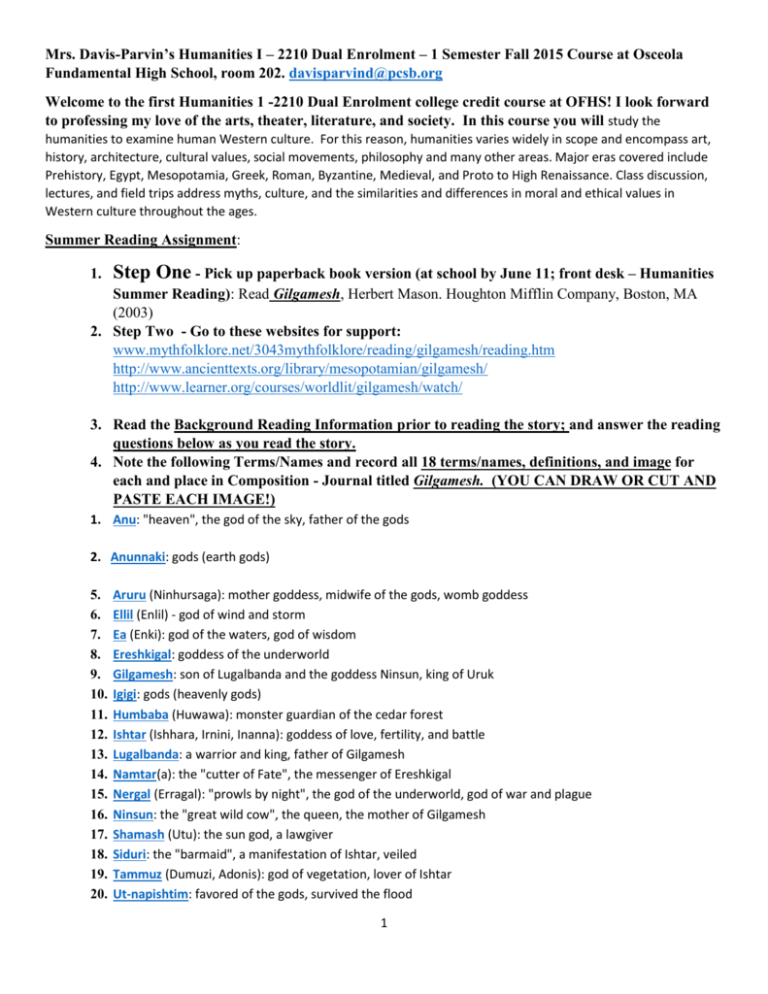
Mrs. Davis-Parvin’s Humanities I – 2210 Dual Enrolment – 1 Semester Fall 2015 Course at Osceola Fundamental High School, room 202. davisparvind@pcsb.org Welcome to the first Humanities 1 -2210 Dual Enrolment college credit course at OFHS! I look forward to professing my love of the arts, theater, literature, and society. In this course you will study the humanities to examine human Western culture. For this reason, humanities varies widely in scope and encompass art, history, architecture, cultural values, social movements, philosophy and many other areas. Major eras covered include Prehistory, Egypt, Mesopotamia, Greek, Roman, Byzantine, Medieval, and Proto to High Renaissance. Class discussion, lectures, and field trips address myths, culture, and the similarities and differences in moral and ethical values in Western culture throughout the ages. Summer Reading Assignment: 1. Step One - Pick up paperback book version (at school by June 11; front desk – Humanities Summer Reading): Read Gilgamesh, Herbert Mason. Houghton Mifflin Company, Boston, MA (2003) 2. Step Two - Go to these websites for support: www.mythfolklore.net/3043mythfolklore/reading/gilgamesh/reading.htm http://www.ancienttexts.org/library/mesopotamian/gilgamesh/ http://www.learner.org/courses/worldlit/gilgamesh/watch/ 3. Read the Background Reading Information prior to reading the story; and answer the reading questions below as you read the story. 4. Note the following Terms/Names and record all 18 terms/names, definitions, and image for each and place in Composition - Journal titled Gilgamesh. (YOU CAN DRAW OR CUT AND PASTE EACH IMAGE!) 1. Anu: "heaven", the god of the sky, father of the gods 2. Anunnaki: gods (earth gods) 5. 6. 7. 8. 9. 10. 11. 12. 13. 14. 15. 16. 17. 18. 19. 20. Aruru (Ninhursaga): mother goddess, midwife of the gods, womb goddess Ellil (Enlil) - god of wind and storm Ea (Enki): god of the waters, god of wisdom Ereshkigal: goddess of the underworld Gilgamesh: son of Lugalbanda and the goddess Ninsun, king of Uruk Igigi: gods (heavenly gods) Humbaba (Huwawa): monster guardian of the cedar forest Ishtar (Ishhara, Irnini, Inanna): goddess of love, fertility, and battle Lugalbanda: a warrior and king, father of Gilgamesh Namtar(a): the "cutter of Fate", the messenger of Ereshkigal Nergal (Erragal): "prowls by night", the god of the underworld, god of war and plague Ninsun: the "great wild cow", the queen, the mother of Gilgamesh Shamash (Utu): the sun god, a lawgiver Siduri: the "barmaid", a manifestation of Ishtar, veiled Tammuz (Dumuzi, Adonis): god of vegetation, lover of Ishtar Ut-napishtim: favored of the gods, survived the flood 1 STEP Three - While you read: Read the oldest epic narrative story in Western culture, answer the following 20 questions in your Gilgamesh section of your Composition Book. (Use the on-line site for support and cite your answers (example, at end of your answer) (p. 19, Mason) - where you found it, such as Mason or on-line site or points taken off if you do not cite your answers! Questions 1. When did Gilgamesh live? 2. Where did he live (name of his city)? 3. Describe Gilgamesh. 4. Why is everyone in that city mad at him? 5. Who is Enkidu? Describe him. 6. How and why was Enkidu created? 7. How and why was Enkidu civilized? 8. Describe the initial encounter between Gilgamesh and Enkidu. 9. Why is Enkidu fated to die? 10. Describe Enkidu's dream of the Underworld. 11. How does Gilgamesh respond to Ishtar's advances? 12. What does Gilgamesh decide to do because of the death of Enkidu? 13. Why does Gilgamesh seek Utnapishtim? 14. How does Utnapishtim's wife help Gilgamesh? 15. Describe the reaction of the gods to the Flood. 16. How would you characterize the gods in the story of the Flood? 17. What test does Utnapishtim give to Gilgamesh? Does he pass it? 18. What secret is revealed to Gilgamesh? 19. What happens to Gilgamesh's "prize"? 20. How does the story end? STEP Four - When finished reading: Answer the questions above (20 pts. /20 pts. for terms and images), place answers in Composition book. Complete the “Elements of the Epic Hero Cycle" Worksheet (20 Points). Note: All three assignments will be collected on the first day of class. In addition, be prepared for both a test and a written assessment the first week of school. STEP Five - Required Course Materials: 1. 2. 3. 4. Required Textbook: TBA (to be announced) Required Supplemental Text: TBA Useful website that coordinates with text - http://humanitiesresource.com Keep a required Composition Book by textbook chapters to record chapter notes and to include terms to study for the quizzes and chapter tests. 5. You will be given a course folder on the first day of class in order to hand in required assignments, (2) essay papers of your choice, quizzes, and chapter tests. 6. A course syllabus will be provided on the first class meeting. STEP Six – If you have any questions feel free to email me at davisparvind@pcsb.org 2 Elements of the Epic Hero Cycle Element Example/page The main character is a hero, who is often possessed of supernatural abilities or qualities The hero's quest. The hero is tested, often to prove the worthiness of himself and his quest. The presence of numerous mythical beings, magical and helpful animals, and human helpers and comparisons The hero’s travels take him to a supernatural world, often one that normal human beings are barred from entering. The cycle must reach a low point where the hero nearly gives up his quest or appears defeated. A resurrection or Redemption. (A humanitarian focus) The Return/Restitution. Often this takes the form of the hero regaining his rightful place on the throne. 3 4
